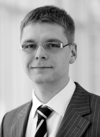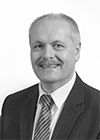Human Asset of Estonia: to Save, to Invest or to Loan?
The representatives of the six factions of the Riigikogu participated in the Riigikogu Toimetised (RiTo) conversation circle on 9 May and discussed the issues of human asset. According to the definition of the Estonian Cooperation Assembly Report of 2010, human asset consists of the health and work capacity of people, and also personal quality, a person’s education, skills and abilities. Clearly the first thing that has to be dealt with is the demographic situation of Estonia. Too few people are born here, and unfortunately many of them die too early.
As after the parliamentary elections in March, there are six factions in the Riigikogu, six members of the Riigikogu took part in the conversation circle. They were: Jaak Aaviksoo (Pro Patria and Res Publica Union), Yoko Alender (Reform Party), Andres Ammas (Free Party), Aadu Must (Centre Party), Jevgeni Ossinovski (Social Democratic Party) and Henn Põlluaas (Conservative People’s Party).
Henn Põlluaas:
It is necessary to have a systemic approach that includes education, family issues, medicine, business, etc. All these have an impact on the demographic situation. It is the most important issue from the point of view of the survival of our people and our country, and so far it has not been systemically handled.
Yoko Alender:
I would like to add the environmental issue. The young generation of today chooses the place where they live, and very many proceed from the quality of the surrounding environment when they make their choices on creating their families. The movement of people is not determined by jobs any more, instead the talents move into the environment where it is good for them to live.
Andres Ammas:
But maybe everything begins from the attitude of the state towards its people? Or perhaps the reasons for emigrating are not always economic, maybe they are also a little emotional. In my opinion we should all look at ourselves, and establish the codes of good practice for institutions. Commitment to good behaviour practice should be a norm in all state agencies, beginning from our own Riigikogu.
Jevgeni Ossinovski:
If there are no hands to do the work, they have to be taken from somewhere. And as getting the hands to do the work through natural reproduction is not a perspective that can be counted on, because the results are visible only in 23 years, then the immigration to Estonia will probably increase.
Aadu Must:
We must defie clearly where we want to arrive. Is it necessary to continue speaking of a nation state? Regarding the migration policy, it can be said that migration reacts quite well to all reforms of policies, for example national policy. We should also compare ourselves with the regional policy of the Nordic Countries. Regional policy is one of the factors that clearly inflence migration.
Jaak Aaviksoo:
It would be wise to spend one’s energy on the things that can be changed. Urbanisation in Estonia will continue, and I would not spend resources on trying to stop it. The issue is rather what the reasonable distribution of population and production is across Estonia. We could say already now that we are trying to preserve the county centres, the schools in all counties.
There are many more people of other nations living abroad, so that maybe the Estonians have not fared the worst. I think that we should direct our power towards inflencing at least some of the people to return to Estonia.






